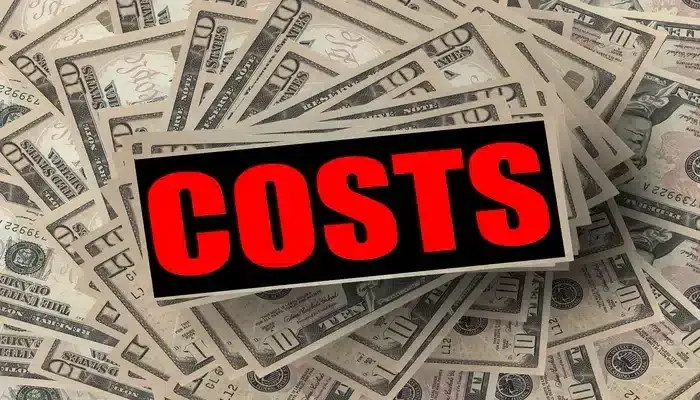What is an Insurance Rider? Should You Get One?
If you are looking to invest as an expat or high-net-worth individual, which is what I specialize in, you can email me (advice@adamfayed.com) or WhatsApp (+44-7393-450-837).
Table of Contents
Introduction
In this article, we will delve into the so-called insurance rider. What is it?
Basically, an insurance rider is a clause, which is also called an insurance endorsement, which extends coverage or modifies the terms of a standard insurance policy. An insurance rider provides insured parties more alternatives for coverage, or they could potentially restrict or limit it.
If a party chooses to buy a rider, there will be an extra charge. The majority have low costs because there is little underwriting required. It can be included in insurance policies that cover lives, homes, cars, and rental properties.
Riders enable insurance companies to build insurance products that cater to the special demands of some customers who do not have their needs covered by ordinary insurance policies. The ability to add various forms of extra coverage allows insurance companies to provide an extra insurance rider to tailor plans.
The savings from not having to buy a separate policy and the flexibility to change coverage later are two advantages of an insurance rider.
Imagine that an insured individual adds an expedited death benefit rider to a life insurance policy because they have a terminal illness. The insured would receive a monetary payout while still alive thanks to this rider. The insured is free to utilize these monies anyway they see fit, either to raise their standard of living or to cover funeral and medical costs.
The face value less the percentage used under the accelerated death benefit rider constitutes the death benefit paid to the insured’s selected beneficiaries upon death.
The insured party has the option to purchase an insurance rider, but they should assess the cost against their particular needs. Although they may sound enticing, an insurance rider comes with additional costs on top of the policy’s premiums.
There are supplementary earthquake riders available on certain homeowner insurance policies, but a person who doesn’t reside close to a fault line probably doesn’t require this extra coverage. A rider might duplicate coverage, so it’s important to review the fundamental insurance policy.
The owner of the insurance policy should think about the cost of the rider and determine whether they actually need it before adding it. It’s a good idea to make sure the rider does not replicate any of the insurance that is already covered by the primary policy.
Insurance Rider Types
There are different types of insurance riders, including long-term care, term conversion, waiver of premiums, and exclusionary.
Long-Term Care Rider

The option of adding long-term care insurance as a rider to a cash value insurance policy, such as universal, whole, or variable life insurance, is frequently offered. Specific long-term care needs can be covered with a rider.
When used, the funds lower the death benefit of the insurance policy. The death benefit is distributed to designated recipients less any payouts made under the long-term care rider.
The policyholder’s needs could occasionally be greater than the policy’s overall benefit. So buying a stand-alone long-term care insurance coverage might be more advantageous. The policyholder saves money if the long-term care rider is not utilized compared to buying a stand-alone long-term care policy.
Term Conversion Rider
Term life insurance offers protection for a set period of time, usually between a decade and 30 years. The policyholder is not assured new coverage with the same terms when the policy expires, while a different policy may be difficult to get or impossible to get because of the policyholder’s medical condition.
A term conversion rider enables the policyholder to switch from term to permanent life insurance without having to undergo a medical evaluation. Young parents who want to lock in coverage to safeguard their family in the future can generally benefit from this.
Waiver of Premium Riders
This rider may not be available in all states and is often only offered when the policy starts. If the policyholder suffers a significant illness, injury, or disability, the waiver of premium rider relieves the insured party of premium payments.
To add this rider, you might need to meet specific criteria, including age restrictions and physical fitness standards.
Exclusionary Riders
Exclusionary clauses limit a policy’s ability to cover a certain occurrence or condition. Individual health insurance plans tend to have exclusionary riders. A pre-existing condition listed in the policy provisions, for instance, may result in coverage limitations.
The application of exclusionary riders to children was forbidden by the Affordable Care Act (ACA) as of September 2010. Thus from 2014, no healthcare insurance policy has been allowed to carry exclusionary riders anymore.
Below are other typical life insurance riders plus an explanation of what they cover.
Guaranteed Insurability Rider
This rider enables you to obtain more insurance coverage within the specified time frame without having to undergo further medical testing. When your life has undergone a substantial change, such as the birth of a child, marriage, or an increase in salary, a guaranteed insurability rider is most advantageous.
You will be able to seek for additional coverage if your health deteriorates with age without providing any proof of insurability. This kind of rider can also allow you to renew your basic policy at the conclusion of its term without having to get a physical exam. Riders that guarantee insurability may expire at a particular age.
The insurance coverage, premium costs, terms, and conditions of riders can vary from one insurer to the next. When a benefit claim for a rider is filed, the rider may be terminated while the insurance under the original policy is still in effect.
Accidental Death Rider

If the insured passes away as a result of an accident, an accidental death rider provides a higher death payment. In most cases, the extra advantage paid out upon an accident-related death is equal to the face value of the original policy, doubling the benefit.
The insured’s dependent receives twice the amount of the policy in the case of accidental death resulting in physical injury, which is the reason this rider is known as a double indemnity rider.
An accidental death rider can be the best option if you are the only breadwinner in your family because the double benefit will cover all of your surviving family’s expenditures.
As many life insurance companies restrict the definition of the term accident, be sure you are mindful of the limitations on an accidental death rider.
Waiver of Premium Rider
If the insured experiences a loss of income or a permanent disability as a result of a sickness or injury before reaching a certain age, this rider will waive any future premiums.
It can be disastrous for a family if the primary provider becomes disabled. The rider relieves policyholders in these situations from paying the base policy’s required premium until they are able to return to work.
When the premium for the insurance is expensive, a waiver of premium rider could be particularly beneficial.
Know the terms and circumstances of your specific rider because the definition of total disability could definitely change from one insurer to the next.
Family Income Benefit Rider
Typically, people who solely support their families by working make purchases of family income benefit riders.
A family income benefit rider ensures that beneficiaries receive a consistent income stream in the event of the insured’s demise. The duration of the benefit for your family must be considered when purchasing this rider.
The benefit of having this rider is clear, since the remaining family will experience fewer financial hardships in the event of a death thanks to the regular monthly money from the rider.
Accelerated Death Benefit Rider
An insured individual may use the death benefits under an expedited death benefit rider if they are identified as having a terminal illness that will significantly reduce their lifespan. Insurance companies typically give the insured a portion of the standard policy’s death benefit.
Insurance companies may reduce the amount your beneficiaries receive upon your passing by deducting the amount you receive plus interest. Most frequently, a minimal surcharge or, in some situations, no surcharge is assessed for this rider. The word terminal illness is defined differently by insurers, therefore before acquiring a rider, find out what it covers specifically.
Child Term Rider
In the event that a kid dies before a certain age, this rider offers a death benefit. When the child enters adulthood, the term plan can be changed into permanent insurance, which comes with coverage up to five times as much as the initial sum and doesn’t require any medical tests.
Return of Premium Rider
A marginal premium is paid under this rider, and at the conclusion of the term, you receive a complete refund. Your beneficiaries will get the amount of the paid premium in the case of your death.
Again, just make sure you comprehend the language of the rider before you buy because insurers sell return of premium riders with different variants.
Insurance Rider Costs

How much money do you need to shell out for an insurance rider?
Well, the extra coverage or benefits that a rider offers are reflected in the rider’s price. The majority, however, have relatively modest premiums because little underwriting is required and the insured is less likely to use them.
Term Life Insurance vs Whole Life Insurance
If you’re wondering what the difference between a term life insurance and a whole life insurance is, the former offers a death benefit for a predetermined number of years, with an expiration if it remains unused. Meanwhile, whole life insurance covers you for the rest of your life. Unlike term life, whole life also includes a cash accumulation component, which makes it a more expensive option compared with term life insurance.
Downsides of Having a Rider on a Life Insurance Policy
There are often fees associated with using certain services. Therefore, if you don’t need or don’t anticipate using certain features or perks offered by a rider, they could merely be an extra expense that raises the amount you pay for your insurance policy.
Final Thoughts on Insurance Rider
The use of an insurance rider can be necessary because the majority of insurers don’t let you customize your insurance policy to meet your specific demands.
A standard life insurance policy can be upgraded with riders, which are extra benefits. If you fulfill their requirements, they can offer several forms of insurance and let you build a policy.
Although purchasing a rider entails paying more, in most cases the added premium is minor because little underwriting is typically needed.
Before you add a rider to a life insurance policy, make sure to always read the relevant documents with all the nitty-gritty details. When deciding which rider is ideal for you and your family, sit down with an insurance expert, if necessary, to weigh not only the advantages but also the drawbacks of the available options.
Pained by financial indecision? Want to invest with Adam?

Adam is an internationally recognised author on financial matters, with over 760.2 million answer views on Quora.com, a widely sold book on Amazon, and a contributor on Forbes.



